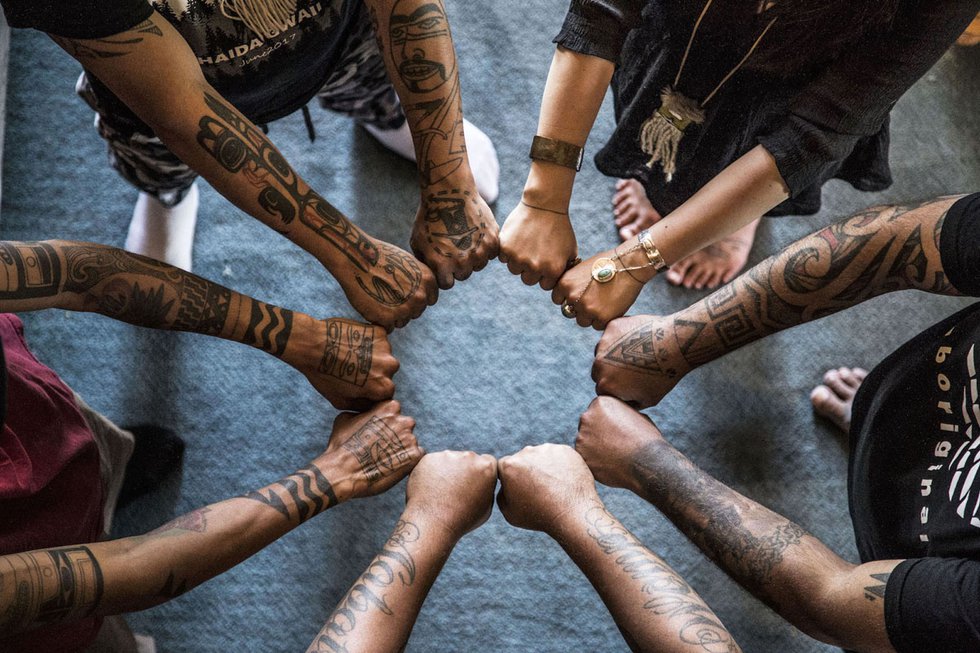At Authority Tattoo, we believe Tattoos have since long been a means of self-expression, but their significance extends far beyond just aesthetics. They are the universal language of art, sometimes utilized to convey complex meanings and stories that transcend words.
As we know, from ancient civilizations to modern-day artists, tattoos have been imbued with symbolic meanings that reflect the culture, beliefs, and experiences of their bearers and the world. We would like to delve into the fascinating world of tattoo symbolism and explore how different cultures use body art to tell stories, convey messages, and connect with their heritage.
It started with ancient roots…
Tattooing has its roots in ancient civilizations, where it served as a means of spiritual expression, status symbol, and sometimes even protection.
Did you know that in ancient Egypt, tattoos denoted social status and spiritual beliefs. Greek and Roman sailors wore tattoos as talismans, while Japanese tattoos symbolized spiritual growth and status. These early cultures recognized the power of tattoos to convey meaning and tell stories in the most artistic and mysterious ways. We try to deconstruct the meaning behind these tattoos and symbolism generally and understand its true essence.
Let’s understand the cultural symbolism
Across cultures, tattoos till date continue to hold symbolic meanings that reflect the values, beliefs, and traditions of their respective societies.
We would like to break down the cultural symbolism of tattoos in different geographical and historical regions. Let’s start with Japanese culture where Kanji characters represent strength, wisdom, or love and Koi fish symbolizes perseverance, while cherry blossoms represent the fleeting nature of life. It all breaks down the emotions we all feel and the same emotions that empower us in varying moments.
While Maori Culture draws inspiration in Tribal patterns signifying ancestry, status, and spiritual connection. Ta Moko, traditional Maori tattoos, convey genealogy, rank, and spiritual growth.
At Authority Tattoo, we know that In the Native American Culture, Animal designs are used which represent protection, courage, and spiritual guidance. Feathers symbolize wisdom, while tribal motifs connect wearers to their heritage.
In Inuit Culture, Tattoos signify spiritual and cultural identity. Whales, polar bears, and other animals represent strength, resilience, and connection to the land.
Indian Culture where Hindu and Buddhist tattoos symbolize spiritual growth, devotion, and enlightenment. Mandalas represent the universe, while lotus flowers signify spiritual evolution.
Modern Expressions through the art of inking
Modern tattoo artists draw inspiration from traditional symbolism, incorporating ancient motifs into contemporary designs. Minimalist patterns, geometric shapes, and abstract designs have become popular, often blending cultural influences. This fusion of old and new creates a unique visual language, allowing individuals to express their personal stories and cultural heritage.
Tatoos beyond symbolism also serve as a means of:
- Storytelling and preserving family histories, cultural myths, and personal experiences.
- Empowerment by claiming identity, expressing individuality, and challenging social norms.
- Healing and coping with trauma, symbolizing survival, and promoting mental well-being.
Authority Tattoo just wants to shed light on the topic that Tattoos are more than just ink on skin, they are a symbolic language that transcends words. By understanding and respecting the cultural significance of tattoos, we can appreciate the stories they tell and the connections they forge. Whether ancient or modern, tattoos continue to serve as a powerful means of self-expression, weaving narratives that unite us across cultures and time.
